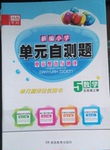
Chapter I.PARTS OF THE SOLAR SYSTEM 3
The sun 3
The Planets 15
The Stars 47
Chapter II.STUDY AND EXPLORATION 55
The First Astronomers 55
The Telescope 67
Space Travel 73
1.On which page would you begin reading to learn about spaceship that have traveled from the earth to other planets ? ______.
[ ]
A.15 B.55 C.73 D.47
2.On which page would you begin reading to learn about the orbits(运行轨道)of the planets ? ______.
[ ]
A.3 B.15 C.47 D.63
3.What is the name of the section that might tell how ancient Egytians studied the planets ? ______.
[ ]
A.The Planets B.The First Astronomers
C.Space Travel D.The Telescope
4.What is the first page of the section in which you might learn the temperature of sun ? ______.
[ ]
A.3 B.67 C.14 D.54
5.Which pages might include information about lenses(透镜)and mirrors that are used to magnify(放大)distant objects ? ______.
[ ]
A.47~54 B.55~67 C.67~72 D.15~46
 优生乐园系列答案
优生乐园系列答案 新编小学单元自测题系列答案
新编小学单元自测题系列答案科目:高中英语 来源:选修导学英语译林7 译林版 题型:050
| |||||||||||||||||||||||||||||||||||||||||||||||||||||||||||
查看答案和解析>>
科目:高中英语 来源:2011年普通高等学校招生全国统一考试英语试题北京卷 题型:050
| |||||||||||||||||||||||||||||||||||||||||||||
查看答案和解析>>
科目:高中英语 来源:山东省沂南一中2010届高三下学期4月全真模拟质量检测 题型:阅读理解
第三部分 阅读理解(共20小题;每小题2分,满分40分)
阅读下列短文,从每题所给的四个选项(A、B、C和D)中,选出最佳选项,并在答题卡上将该项涂黑.
A
Amiya Olden could have been a poster child for a reading crisis that affects nearly 2 million Michigan residents older than 1 6:They read below a sixth-grade level,which makes it difficult to find jobs and to improve their lives.Among them,Amiya is one.
Amiya Olden remembers well the day she graduated from Denby High school.She handed her diploma to her mother,who read it to her.“Then when someone asked me to read it,I could remember the things she read,and I knew what I had to say,”recalled Amiya Olden.“When we would go out to restaurants with my aunts,and that is when I really would get upset.1 would see words on the menu but I couldn’t read! ”
But don‘t feel sorry for her. She changed her life by reaching a point where she’d read enough.Two summers ago,she took charge of her life when she walked into Pro Literacy Detroit to improve her reading.Nineteen months ago,she was reading at a second-grade level;now at a fifth-grade level.
Olden now splits her days between her classes at Pro Literacy and the library,where she checks out books and reads them.She says she hopes her improved reading skills will help her find a good job.
And she has advice for others,who have trouble reading.
“Don’t give up on it,”she said.“Even though it can be challenging and you might get frustrated sometimes,practice does help.If you really want to be able to go somewhere,go out to a restaurant and you have to read signs and things like that,you want to know what you want to eat and where you want to go...If you want to succeed in life and grow,you have to read.More important,you have to feel confident that you can.”
56.Amiya' mother read the diploma to her so that_________.
A.she could encourage her daughter to improve her reading
B.her daughter could remember the content of the diploma
C.they both could remember the particular moment
D.she could show off before her daughter
57.Amiya attends Pro Literacy Detroit to __________.
A.get another diploma B.improve her reading level
C.find a good job in the training center D.be a poster child for the reading crisis
58.From the passage we can see in Michigan__________.
A.many people can’t find good jobs due to poor reading
B.the job market pays too much attention to reading
C.most students can’t graduate from high school
D.the reading crisis affects only poor people
59.Which of the following is true of Amiya?
A.She is 16 years old now.
B.A good job has been offered to her.
C.She is an adviser for those with reading difficulty.
D.Most of her time is divided between her classes and the library.
60.With the study at Pro Literacy,Amiya is now .
A.puzzled B.discouraged C.confident D.1earned
查看答案和解析>>
科目:高中英语 来源:江苏省20092010学年高二下学期期末考试试题(英语) 题型:阅读理解
第三部分 阅读理解 (共15小题;每小题2分,满分30分)
请认真阅读下列短文,从短文后各题所给的A、B、C、D四个选项中,选出最佳选项,并在答题卡上将该项涂黑。
Watching television more than two hours a day early in life can lead to attention problems later in adolescence, according to a study released on Tuesday.
The roughly 40 percent increase in attention problems among heavy TV viewers was observed in both boys and girls. The link was established by a long-term study of the habits and behaviors of more than 1,000 children born in Dunedin, New Zealand, between April 1972 and March 1973.
The children aged 5 to 11 watched an average of 2.05 hours of weekday television. From age 13 to 15, time spent in front of the tube rose to an average of 3.1 hours a day.
"Those who watched more than two hours, and particularly those who watched more than three hours, of television per day during childhood had above-average symptoms of attention problems in adolescence," Carl Landhuis of the University of Otago in Dunedin wrote in his report, published in the journal Pediatrics.
Young children who watched a lot of television were more likely to continue the habit as they got older, but even if they did not the damage was done, the report said.
"This suggests that the effects of childhood viewing on attention may be long lasting," Landhuis wrote.
Landhuis offered several possible explanations for the association.
One was that the rapid scene changes common to many TV programs may over stimulate(刺激)the developing brain of a young child, and could make reality seem boring by comparison. "Hence, children who watch a lot of television may become less tolerant of slower-paced and more mundane tasks, such as school work," he wrote.
It was also possible that TV viewing may supplant other activities that promote concentration, such as reading, games, sports and play, he said.
Previous studies have linked the sedentary固定不动的)habit of TV watching among children to obesity and diabetes, and another study in the same journal cited the poor nutritional content of the overwhelming majority of food products advertised on the top-rated US. children's television shows.
Up to 98 percent of the TV ads promoting food products that were directed at children aged 2 through 11 "were high in either fat, sugar, or sodium," wrote Lisa Powell of the University of Illinois in Chicago.
56. The recent survey shows that _________.
A. watching TV can cause all kinds of diseases for children
B. Watching TV over 2 hours a day early in life can cause attention problems later in adolescence
C. TV sets have played an important part in our daily lives
D. watching TV has side effects on children’s future
57. People used to think that _________.
A. the sedentary habit of TV watching among children could easily lead to obesity and diabetes
B. watching TV more than 2 hours every day did good to children’s health
C. the children wasn’t patient with their homework because of watching TV too much
D. it was very important for children to watching TV early in life
58. The underlined word “Hence” means _________.
A. In that case B. And yet C. For this reason D. On the contrary
59. In Landhuis’ opinion, _________.
A. how to develop children’s attention problems is a lasting problem
B. attention problems caused by watching TV during childhood may be hard to get rid of
C. the key of settling attention problems is not watching TV.
D. there shouldn’t have many food products ads on children's television shows
查看答案和解析>>
科目:高中英语 来源:广东省2009-2010学年度高一下学期第14周周测英语试题 题型:阅读理解
四.阅读理解(每题4分,共20分)
British newspapers are among the oldest and most famous in the world. But recently big changes have seen these traditional publications try to fit the modern world. After 221 years, The Times (《泰晤士报》) has changed its size to become much smaller. In fact, the paper has cut its size in half from a broadsheet to tabloid.
In Britain the newspaper market is divided between the larger broadsheets and the smaller tabloids. These terms refer to the size of the papers’ pages, but there is also a clear difference in content. Broadsheets such as the Times, the Guardian (《卫报》) and Daily Telegraph (《每日电讯报》) are serious papers. They cover a broad range of political, economic and international issues. Their stories are also reasonably long and use quite formal language.
Tabloids have far more stories about less serious issues such as celebrities’(名人) love lives. Their stories are shorter and use more simple language. Tabloids often have bigger pictures. Britain’s best-selling newspaper, the Sun, is a tabloid and has a naked (裸体的) girl on page three every day.
By changing to the size of a tabloid, the Times is following in the footsteps of a less famous broadsheet paper the Independent (《独立报》). It changed to tabloid last year and saw its sales increase greatly. Although both papers have switched to the smaller size, the content of the papers has remained the same. They are both still serious papers.
The two papers claim that people find the smaller size easier to handle when they travel to work on the bus or the train in the morning. Instead of calling the new style of their paper tabloid, the paper says its new size is “compact” (紧凑型).
1. In which year was The Times born?
A. 1782 B. 1785 C. 1788 D. 1786
2. Which is the most correct statement?
A. Broadsheets are larger in size while tabloids are smaller.
B. Tabloids are less serious than broadsheets.
C. Broadsheets contain more news than tabloids.
D. They are different in size, content and the style of language.
3. In which of the following newspapers would you find more news about the personal life of the famous soccer star Beckham?
A. The Sun B. The Times C. The Independent D. The Guardian
4. According to the passage, we can infer the main reason for The Times' changing into the tabloid is that_____.
A. it wants to become convenient for people to carry.
B. it wants to increase its circulation (发行量).
C. it intends to copy what The Independent has done.
D. it is unlikely to stay in business if it does not change.
5. Which of the following statements is true according to the given information?
A. There are more tabloids than broadsheets in Britain at present.
B. After the change, there will be no differences between The Sun and The Times.
C. Although The Times has cut its size, it remains a serious paper.
D. All the papers will tend to have the same style in the future.
查看答案和解析>>
湖北省互联网违法和不良信息举报平台 | 网上有害信息举报专区 | 电信诈骗举报专区 | 涉历史虚无主义有害信息举报专区 | 涉企侵权举报专区
违法和不良信息举报电话:027-86699610 举报邮箱:58377363@163.com